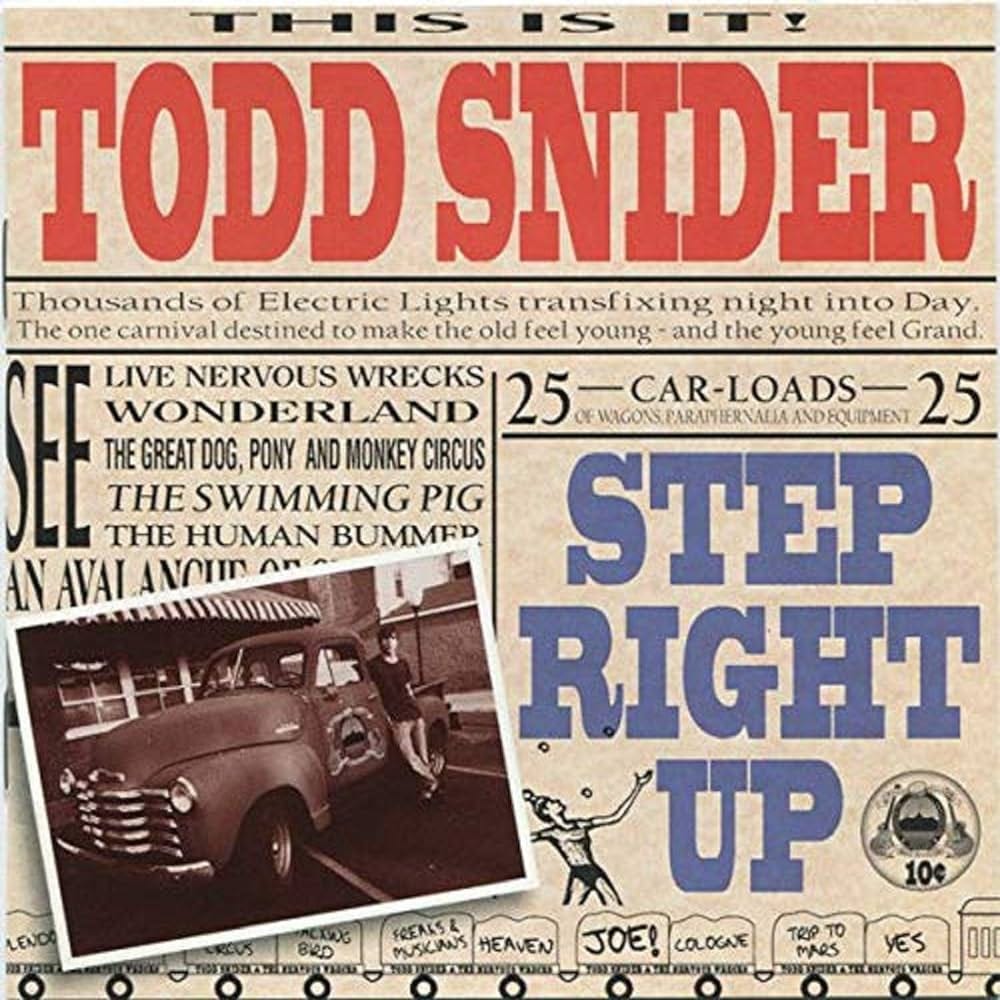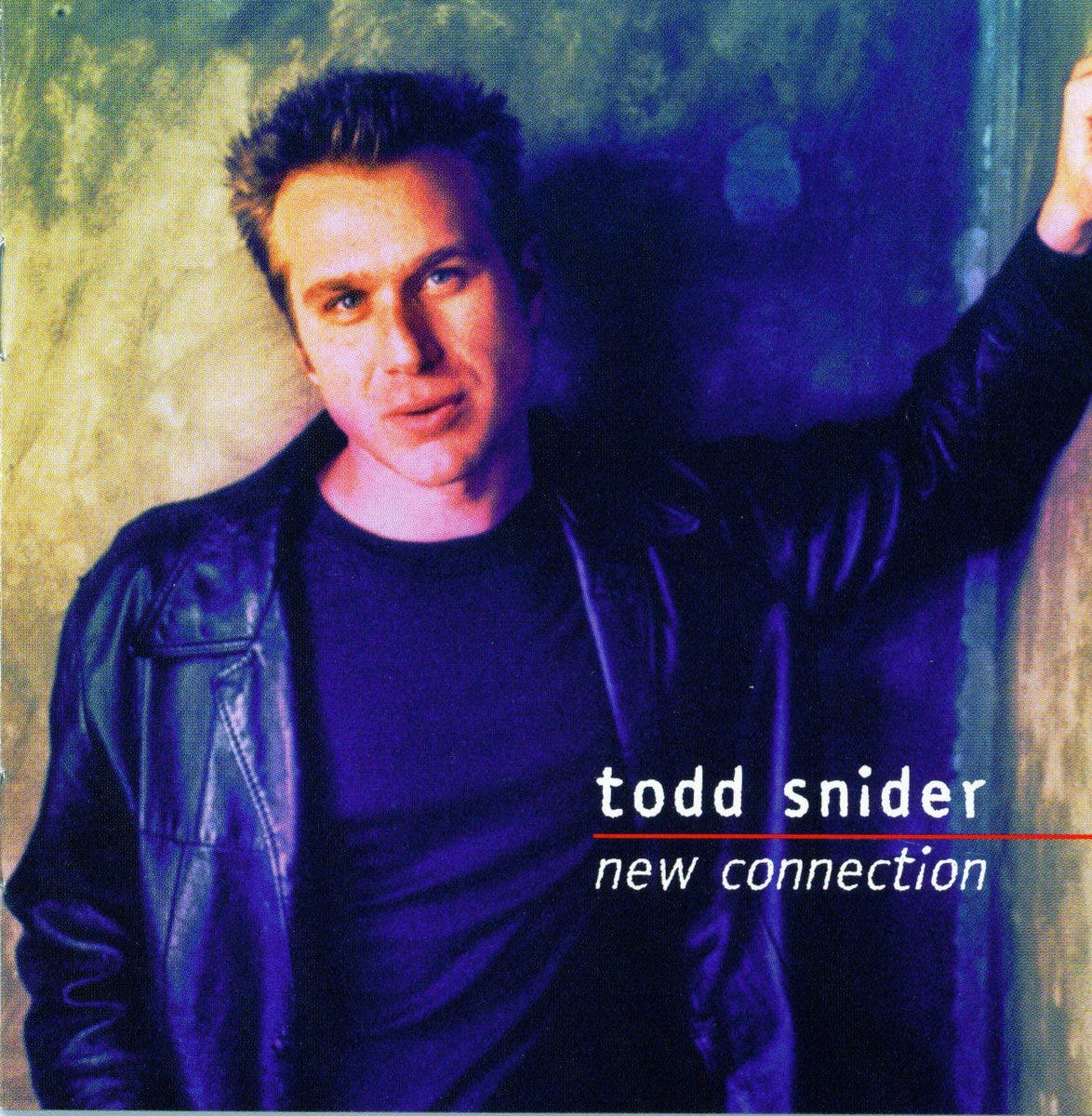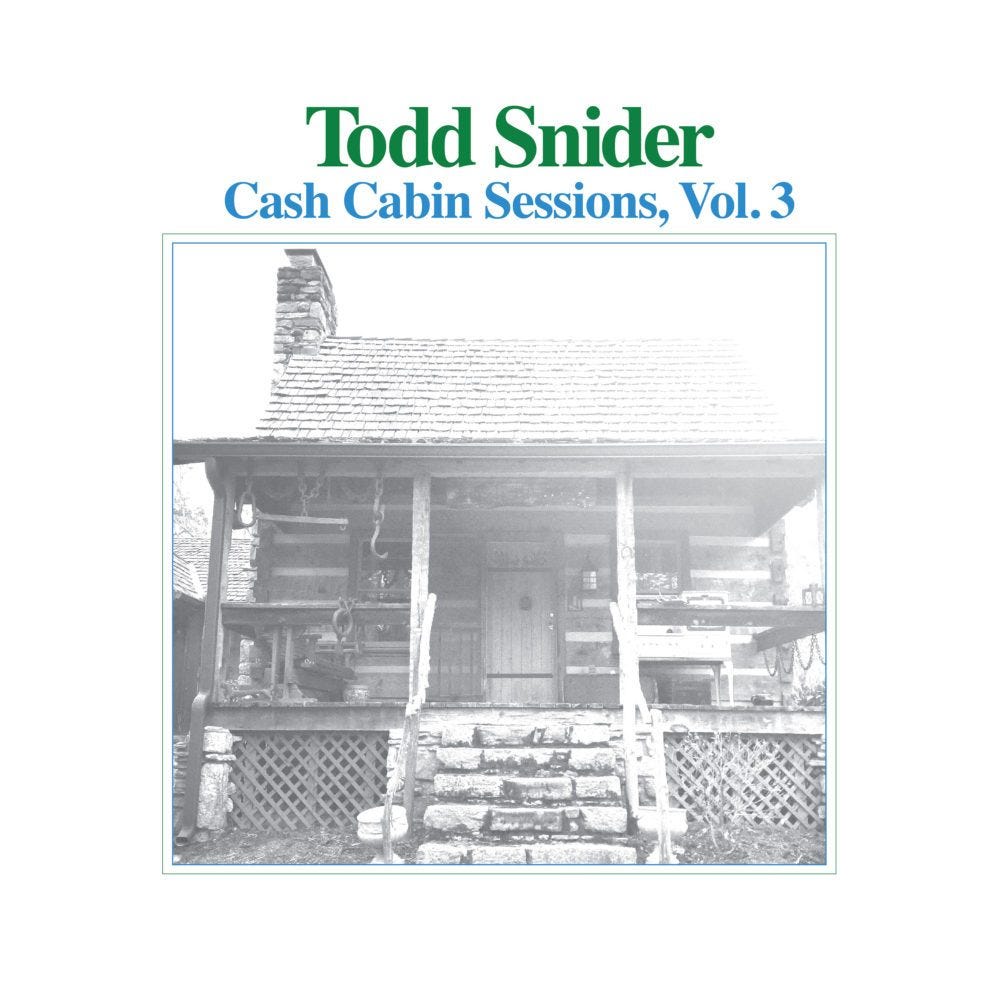By Daryl Sanders
While music rankings can be fun and offer food for thought, they also are inherently subjective, and this ranking of Todd Snider’s 14 studio albums of original material is no different.
This ranking is my opinion and mine alone, but it is informed by extensive conversations I’ve had with Snider, including discussions about every single track on every one of these albums. While I know there are those who might disagree, I don’t think Snider has made any bad records. So what follows is a nuanced ranking that ranges from good, yet flawed to great.
The Snider Files aim to be interactive, and this piece is intended to invite discussion, so I welcome your feedback and encourage you to share your own rankings in the comments, which you can do by accessing the story on The Snider Files website here. Here’s how I rank Snider’s studio albums, in ascending order:
14. Viva Satellite (1998, MCA Records)
By Snider’s third record, Margaritaville Records was no longer distributed by MCA, but as part of their departure, Snider remained with the parent company. In that moment, he wanted Todd Snider and The Nervous Wrecks to be the next Tom Petty and the Heartbreakers, and a lot of this record does indeed sound like a Tom Petty record. This is especially true on cuts like “Positively Negative,” “Yesterdays and Used To Be’s,” “Guaranteed,” “Out All Night” and the first single, “I Am Too.” Truth be told, Snider could have done well as the next Tom Petty. Like Petty, he could hit that sweet spot between folk rock and Southern rock. But that was not where his muse was leading him, and one track on this record — “Can’t Complain” — provided a clue as to where he was headed next. After Viva Satellite, he started making records for John Prine’s Oh Boy label, where the focus would be squarely on Snider as the promising songwriter he was. As it would turn out, Viva was the last record Snider would make with The Nervous Wrecks.
13. Step Right Up (1996, Margaritaville Records/MCA)
A writer-artist’s second album is often his most difficult. The reason for that is he has his entire life to write his first record, but then is expected to write a second album of equal or better material while on tour promoting the first record. It’s almost impossible to do, so it’s really no surprise Snider was unable to top Songs For The Daily Planet. But that is not to suggest Step Right Up doesn’t have some great moments. The first single, “I Believe You,” is Snider’s answer to John Lennon’s “God,” in which Lennon declares “I don’t believe in Beatles.” Snider believes in the Beatles and a lot more. He channels manic, mid-’60s Dylan on “Side Show Blues,” while “Horseshoe Lake,” his co-write with Will Kimbrough, perfectly captures the existential trap in which so many people find themselves. The album also includes “Moon Dawg’s Tavern,” the first of many homages Snider would pen about some of the more colorful people he’s met along the way.
12. New Connection (2002, Oh Boy Records)
Snider recorded New Connection at one of the lowest points of his life, and when compared to all his other records, it sounds like it. His energy is low throughout much of the record, and his vocal performances lack his usual swagger. The overall feel of the record is subdued. Dark clouds hung over this album — Snider was struggling with addiction to various substances during this period, and to make matters even worse, his best friend Skip Litz, the self-proclaimed mayor of East Nashville and subject of “Play a Train Song,” was dying. Still, the album features some great songs, including what may be his best-known song, “Beer Run.” There’s also the absolutely wonderful “Rose City” about his hometown of Portland. Oregon, and the achingly beautiful “Waco Moon,” his reaction to hearing the heartbreaking news of Eddie Shaver’s death on New Year’s Eve 2000. In addition, New Connection includes co-writes with his first two songwriting mentors, Kent Finlay (“Statistician Blues,” “Close Enough To You”) and Keith Sykes (“Class of 85”). Snider also covers John Prine’s “Crooked Piece of Time,” with Prine adding backing vocals and singing lead on the third verse.
11. Happy to be Here (2000, Oh Boy Records)
This was Snider’s first album for John Prine’s Oh Boy label, and he was moving back into troubadour mode on most of the record with the exception of one track — the rocker “Forty Five Miles,” which would have fit nicely on Viva Satellite. The record was produced by well-regarded roots rock producer Ray Kennedy, and the material and performances are all top-notch. Several of the songs on the record, including “D.B. Cooper,” “Ballad of the Devil’s Backbone Tavern” and “Lonely Girl,” remain concert staples. The album also includes an inspired interpretation of Tommy Womack’s “Betty Was Black (Willie Was White).” Womack’s original recording of the song with The Bis-Quits took the song to the swamp, whereas Snider and Kennedy took it to the backwoods. Snider was still finding his own sound when he recorded this album, and considering the records that came later, it’s easy to hear the degree to which Kennedy influenced the arrangements.
10. Eastside Bulldog (2016, Aimless Records)
Eastside Bulldog is the manifestation of Snider’s lifelong love affair with garage rock. Seven of the nine tracks included on this album originally appeared on the 2010 free EP Shit Sandwich, which was attributed to Elmo Buzz and the Eastside Bulldogs. Those seven songs were recorded in one session and essentially written in the studio. Two of the songs got new names on Eastside Bulldog: “Chicks and Cars and Partying Hard” became “Hey Pretty Boy,” and “Bulldog Fight Song” became “Enough Is Enough.” Also, “Come On Up and See Me Some Time” was shortened to just “Come On Up.” In addition, Snider penned another pair of songs for the 2016 album — “Check It Out” and “Funky Tomato.” As a serious student of garage rock and early rock & roll, Snider is well aware of the history of R&B and rock songs inspired by dances, so it’s not surprising he wrote such a song for the Bulldogs. “Funky Tomato” is about a dance Snider created in honor of East Nashville’s annual Tomato Art Festival, which Buzz and the Bulldogs have headlined.
9. The Excitement Plan (2009, Yep Roc Records)
For many artists, this would be the best album in their oeuvre. It features a strong collection of songs, most of which were recorded in Los Angeles with all-star backing from producer-bassist Don Was and drummer Jim Keltner. Five of the 12 songs were new versions of songs Snider had recorded for the 2007 album that he shelved, Crank It, We’re Doomed, including “Slim Chance” and “America’s Favorite Pastime,” Snider’s humorous recounting of “the day Dock Ellis of the Pittsburgh Pirates threw a no-hitter on LSD.” Another, “Don’t Tempt Me,” was the actual recording from the Crank It sessions featuring Loretta Lynn. With the exception of the solo acoustic Cash Cabin Sessions, Vol. 3, the spare arrangements and instrumentation make this the most intimate of Snider’s albums. Snider carries more of the load musically on this album than on any of his previous records, playing both acoustic guitar and piano, and demonstrates his growth as a musician after more than a decade and a half of making records and touring behind them. This is a record made by an artist, a producer and a drummer who are among the best at what they do.
8. Peace Queer (2008, Aimless Records)
Snider made the decision to put Crank It, We’re Doomed on the shelf in part because he felt the material was all over the place. He divided the songs into two piles: one of the piles contained songs related to the war on terror, while the songs in the other pile were more typical of the material he’d been writing in the Aughts. Peace Queer is, of course, the record about the war. Five of the eight tracks featured songs he had recorded for Crank It, and four were the original recordings. It was the first album released on Snider’s own Aimless Records, and he was apprehensive about releasing it. Snider thought people were tired of the war and wouldn’t want to hear this collection of songs. As it turned out, he had nothing to worry about. The opener, “Mission Accomplished (Because You Gotta Have Faith),” was in heavy rotation on Americana radio. and the record went to number one on the Americana album chart. Originally called “The War on Terror,” the finale, “Is This Thing Working,” was Snider’s first experiment with fusing funk with folk, vamping on one chord the entire song. Snider had renamed two other songs from Crank It by the time they were released on Peace Queer — “Handleman’s Revenge” became “Stuck On The Corner (Prelude To A Heart Attack)” and “From a Dying Rose” became “Dividing The Estate (A Heart Attack).”
7. Songs for the Daily Planet (2004, Margaritaville Records/MCA)
Snider’s debut album was exactly what the title says it was — songs for The Daily Planet, the small Memphis bar where he had a long-running Wednesday night residency. It’s a tight bakers dozen of songs, most of which had been test-driven in front of live audiences many times before they were recorded with his band The Nervous Wrecks. At that point, Eddie Shaver had replaced Keith Sykes on guitar. This was not your typical first album and Snider was not your typical new artist. Snider had been schooled by two knowledgeable songwriting mentors (Kent Finlay and Sykes), had had one failed record deal (with Liberty Records) and had written hundreds of songs by the time he penned this collection. So the songwriting brilliance represented in compositions like “My Generation (Pt. 2),” “This Land Is Our Land,” “Alright Guy” and “Talkin’ Seattle Grunge Rock Blues,” the hidden track that became a radio hit, was not beginner’s luck. It was the culmination of six years of intense study and work by Snider, putting in his 10,000 hours and more as he mastered the craft of songwriting.
6. Crank It, We’re Doomed (2023, Aimless Records)
Snider recorded Crank It, We’re Doomed during one of the most fertile periods of his career. He had so many songs flowing out of him he lost the plot, as he would later say. It was the third album in a row he made with co-producers Will Kimbrough and Eric McConnell at McConnell’s East Nashville studio, and he was really honing his sound. Snider wanted to record a masterpiece and envisioned a double album that had three iconic classic rock albums as its sonic touchstones: the Stones’ Exile on Main Street, the Beatles White Album and Dylan’s Desire. The album’s 15 tracks had been mixed, sequenced and mastered when Snider decided to pull the plug on it at the end of 2007. He felt he had lost his way at some point during the making of the record. When the album was finally released 13 years later, it’s easy to hear how it is the bridge between Snider’s two artistic breakout albums — East Nashville Skyline and The Devil You Know — and everything that followed. While about a third of the tracks were eventually released on later albums and another third were rerecorded with new arrangements for later releases, the previously unreleased tracks are revelatory. From the grungy, garage-rock choogle of “Juice” to “What Made You Do It,” the jazzy spoken word response to Billy Joe Shaver shooting a man outside a bar in Lorena, Texas, Snider was flexing his creative muscles on this long, lost collection.
5. Cash Cabin Sessions, Vol. 3 (2019, Aimless Records)
Snider follows his muse religiously, and his muse led him to shelve the 2018 Hard Working Americans’ album The Ghost of Johnny Cash and go back to where he started as a solo acoustic performer for his next album. Snider, who had gone through considerable growth as a musician since he was performing solo at The Daily Planet in Memphis, played all the instruments on Cash Cabin Sessions, Vol. 3, and his performances here make that growth apparent. He recut five of the songs recorded during the HWA Cash Cabin sessions — “Like a Force of Nature,” “Just Like Overnight,” “The Ghost of Johnny Cash,” “Watering Flowers in the Rain” and “Cowboy Jack Clement’s Waltz.” He also cut “Working on a Song,” another song he had recorded during the HWA sessions. In addition, he reworked “Something Else” from HWA’s Rest In Chaos as “Framed.” But the three songs that make this record a masterpiece are the three artfully intelligent and hilarious interpretations of the talking blues that are included — “Talking Reality Television Blues,” “The Blues on Banjo” and “A Timeless Response to Current Events.” Snider already had done some heavy lifting in that particular musical sub-genre prior to unveiling this transcendent trio of songs, which contain some of his deepest and most insightful social and cultural commmentary.
4. First Agnostic Church of Hope and Wonder (2021, Aimless Records)
Snider’s decade-plus-long funk fever finally broke when he recorded First Agnostic Church of Hope and Wonder. The fusion of funk and folk was something that had been percolating beneath the surface of his songwriting since the Crank It, We’re Doomed sessions in 2007. He had tried and failed several times to find a producer who could hear what he heard in his head, but finally realized he would have to produce the record himself to get the sound he was hearing. The result was his heaviest record, both musically and lyrically. Multi-instrumentalist Robbie Crowell contributed drums and most of the percussion, but Snider played everything else on the record, including bass, guitar, harmonica, banjo, piano and percussion, and sang all the lead and backing vocals. Sonic shaman Tchad Blake mixed the record and added some mongrel musical sweetening here and there during that stage. It’s a concept album, which loosely tells the story of a wayward minster who discovers the meaning of life, starts a church, bilks his congregation out of a lot of money, gets away with it, and in the process, learns that God is hilarious. The album opens with “Turn Me Loose (I’ll Never Be the Same),” a quasi-tribute to longtime friend and inspiration Jerry Jeff Walker, who passed away while Snider was working on the album. It also includes elegies to two other friends he lost — John Prine and Jeff Austin. Snider concludes the story of the wayward preacher with a P-Funk-worthy slice of funk hilarity, “The Resignation vs. The Comeback Special.” It should be noted the album as you currently can hear it on the streaming services has one less track than the original release. Snider had “Battle Hymn of the Album” removed from the online versions and presumably from future physical copies.
3. The Devil You Know (2006, New Door/Universal)
Riding the momentum of East Nashville Skyline, Snider followed his artistic breakout with a record that is arguably even better. He worked again with the same loose ensemble that appeared on East Nashville Skyline, including co-producers Will Kimbrough and Eric McConnell, drummer Paul Griffin and violinist Molly Thomas. The record opens with “If Tomorrow Never Comes,” not to be confused with the Garth Brooks recording of the same name. There is, however, a connection between the two recordings. When Snider sings “You can’t prove anything, but one thing is true / If you can steal from me, I can steal from you,” he’s taking aim at Music Row songwriter Kent Blazy, who co-wrote the Brooks hit. Blazy also co-wrote Brooks’ duet with George Jones, “Beer Run,” which just happened to have the exact same chorus as Snider’s “Beer Run” song. No, Snider couldn’t prove anything, but he could take one of Blazy’s titles, such as the one from Brooks’ sappy first hit, and use it as a launching point for a far superior song that’s punk AF. From there, Snider serves up one carefully crafted song after another. There’s “Thin Wild Mercury” about the time Dylan kicked Phil Ochs out of his limo and “You Got Away With It (A Tale of Two Fraternity Brothers),” his satirical homage to President George W. Bush. There’s also “Just Like Old Times,” which inspired the 2020 independent film Hard Luck Love Song. But it’s the title cut that best shows Snider’s storytelling genius. The arrangement unfolds at breakneck speed, underscoring the life-and-death urgency of the story that turns at the junction of what’s legal and what’s just.
2. East Nashville Skyline (2004, Oh Boy Records)
This record barely gets the nod over The Devil You Know because it came first and had a greater cultural impact. Snider took creative control of his career on East Nashville Skyline and never looked back. His mentor/guardian angel Bob Mercer had challenged him to do better after New Connection, and Snider met the challenge head on. The album represented an artistic breakthrough for the songwriter who had carried the burden of great potential from his first album forward. But it not only was it an important record for him individually, it was important for East Nashville. With a cast of East Nashville musicians, the record launched the neighborhood onto the national stage. With a title evoking Dylan, the record includes what is arguably Snider’s greatest composition — “The Ballad of the Kingsmen” — and one of his most requested songs, “Play a Train Song,” which broadened the concept of the train song with a composition that doesn’t mention anything about trains, only a guy who always requests train songs. Then there’s “Conservative, Christian, Right Wing Republican, Straight, White, American Males,” the brilliant slice of political satire that prompted a call from Kris Kristofferson, who told Snider, “You’ve done it again! They can’t stop you now!”
1. Agnostic Hymns & Stoner Fables (2012, Aimless Records)
To my ears, this album is Snider’s greatest work. On several of the songs, he’s like a one-man Occupy Wall Street — graphically capturing the great divide between the haves and the have nots. Snider plays all the guitar on the record, another in which he recreates the sonic mix on Dylan’s Desire — guitar, harmonica and violin, with the latter and backing vocals courtesy of Amanda Shires. Snider’s guitar work sets the tone throughout, but especially on the opener “In the Beginning,” in which he weaves the story of the birth of religion around sinister guitar lines which accentuate the story’s underlying darkness. From there, the album rolls into “New York Banker,” with its chorus of “good things happen to bad people.” “In Between Jobs” also addresses that economic divide, and as does Snider’s cover of Jimmy Buffett’s “West Nashville Grand Ballroom Gown.” In addition, the album includes the two songs born from “Mercer’s Folly,” which appeared on Crank It, We’re Doomed. Snider took the lyrics from “Mercer’s Folly” and paired them with a new melody for “Big Finish,” then used the original melody for his homage to Mick Jagger and Keith Richards, “Brenda.” There’s also “Digger Dave’s Crazy Woman Blues,” which tells the true story of a killing involving some people Snider knows in Homer, Alaska. But the album’s true jewel is “Too Soon To Tell,” in which Snider calls BS on God himself. It may be the best song Snider has ever written, maybe even better than “The Ballad of the Kingsmen.” Kris Kristofferson was so impressed with the song he had Snider play it for Guy Clark backstage at a big charity show in Texas. After hearing it, Clark looked at Kristofferson and said, “Damn!”
© 2023 Daryl Sanders




















Nice list and as you said all lists are subjective.
I do need to say this has been the best $50 I've spent in a long time. Really loving the stories and "back stage" access. Thanks a bunch!!!
Can't really argue with this list. But generally Ixm not a big fan of "this song/album is better than that song/album." As it relates to Todd, if anyone asks what my favorite song/album is, I respond simply and sincerely, "whichever one I'm listening to at the moment." Your back stories and rationale for your choices are very illuminating and help explain the different feels and sounds on each studio album. Thanks!